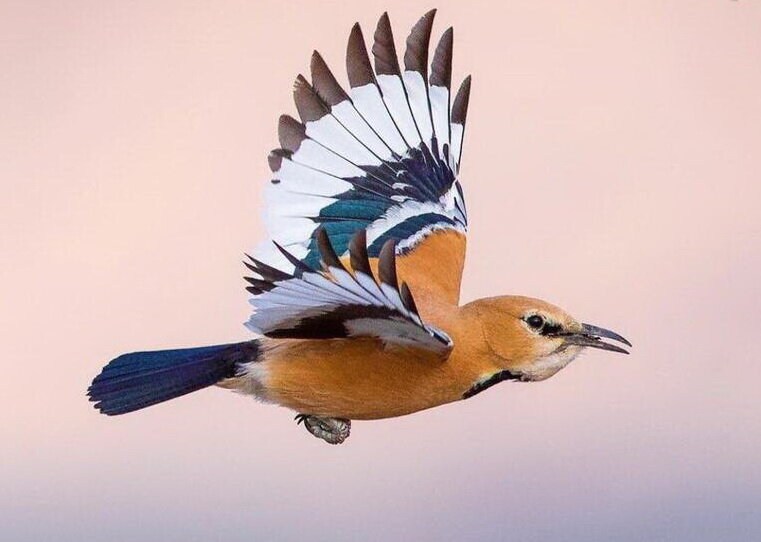Persian ground jay: Iran’s desert treasure

TEHRAN – Iran is one of the world’s richest in biodiversity, despite the diverse fauna and flora of the country, there are only two endemic species, one of which is the beautiful and rare Persian ground jay.
Persian ground jay, the only endemic bird species of Iran, is considered one of the most precious animals of the country’s deserts.
In Farsi, Persian ground jay’s is called “Zagh-e-Boor” (literally meaning blonde chough). Local people in Lut Desert also call it “Soose’ le’ng” which drives from its jackhammer type of feeding while scavenging at the roadsides.
The Persian ground jay is baby brown type in color and around 24 centimeters in length and weighs 85 to 90 grams. It has a boldly patterned and slightly curved slim bill adapted for digging and probing and relatively short, glossy black upper tail coverts.
They are active during dun and dusk, avoiding the noon heat. Persian ground jay shows adaptations to ground living such as long, strong legs adapted to fast running and the ability to leap and bound onto boulders and rocks with great agility. Their long, curved thick bills are adapted for digging and probing. While capable of flight, they prefer running, and will readily perch on trees and bushes.
Breeding occurs in the first half of March. When the Iranian ground Jay bonds with the opposite sex the pairing is long-lasting and can stay together all year. Persian ground jay usually lay four small eggs, each one-inch-long, light cream-colored mottled with reddish-brown dots.
The Persian ground jay is baby brown type in color and around 24 centimeters in length and weighs 85 to 90 grams. It has a boldly patterned and slightly curved slim bill adapted for digging and probing and relatively short, glossy black upper tail coverts.
It has a beautiful musical voice. When you hear it singing constantly in low sound, be sure that it is driving you away from its nest; it also opens its head feathers like a crown and also opens its tail, and attracts attention till the danger goes away.
Where can Persian ground jay be found?
This Persian species lives in desert and semi-desert areas, mostly on the Iranian plateau, though its range spreads southeastward to the Iran-Pakistan border.
Over the past years, the species have been observed in different provinces of Iran, including Semnan, Isfahan, Tehran, Yazd, Khorasan Razavi, South Khorasan, Kerman, Fars, Sistan-Baluchestan, and Golestan.
While the highest density of the bird can be found in Khar Turan National Park in Semnan Province. The closer you get to the eastern central deserts of Iran the better chance of observing them you stand.
Threats to Persian ground jay
Although Persian ground jay is the only endemic bird living in Iran, in the Lut Desert, little information exists about it. However, the survival of this animal can be described as the least concern.
Of course, this does not mean that the species’ life is not in danger. Human involvement, such as habitat destruction and improper use of natural resources are among the causes of death and population decline of these birds.
Another danger is that they can be hunted by other animals (including eggs) such as foxes, snakes, and livestock that reduce the area’s vegetation. Due to the fact that Persian ground jay lives in uninhabited areas, they are less likely to be hunted by humans.
FB/MG
